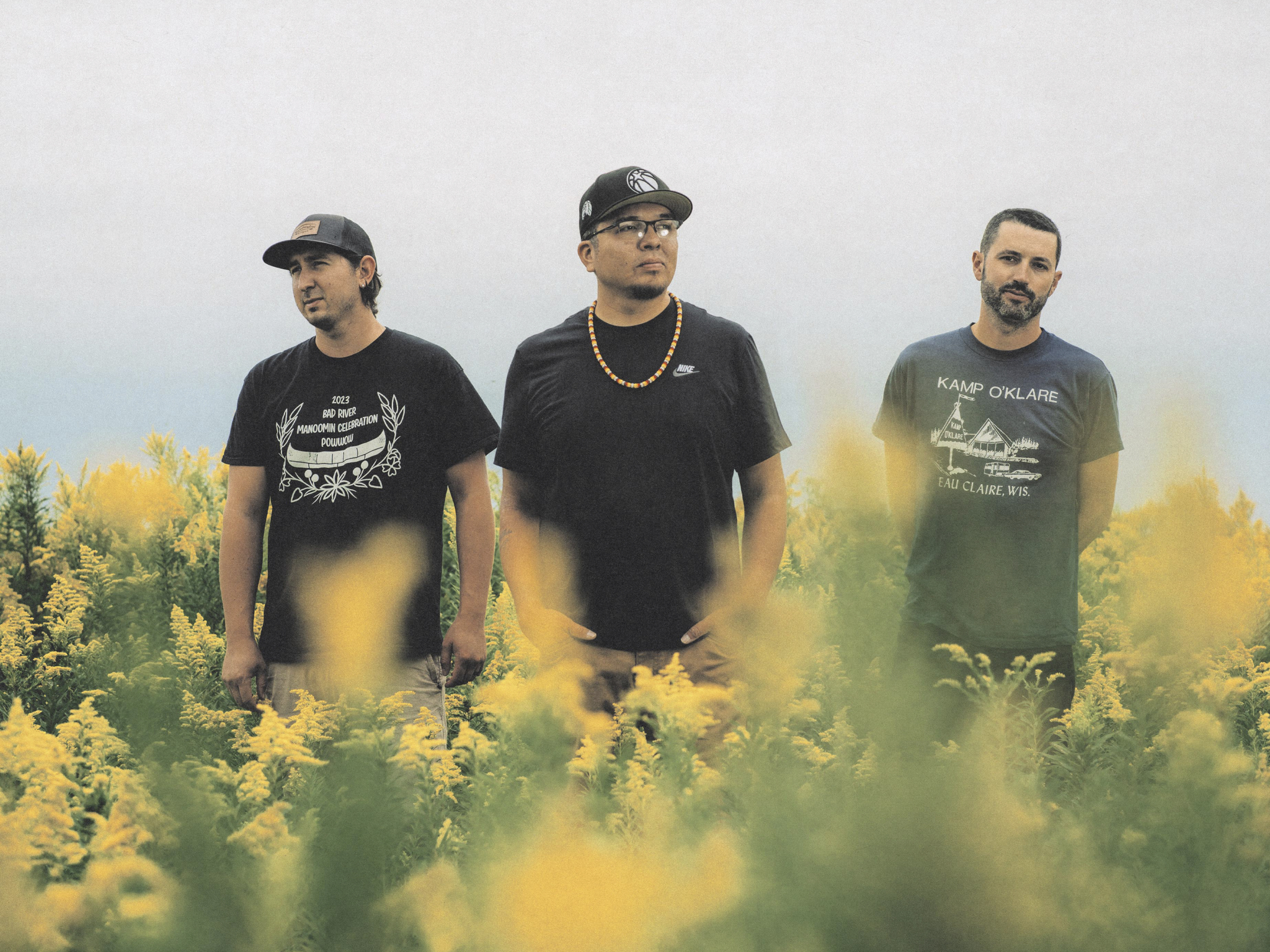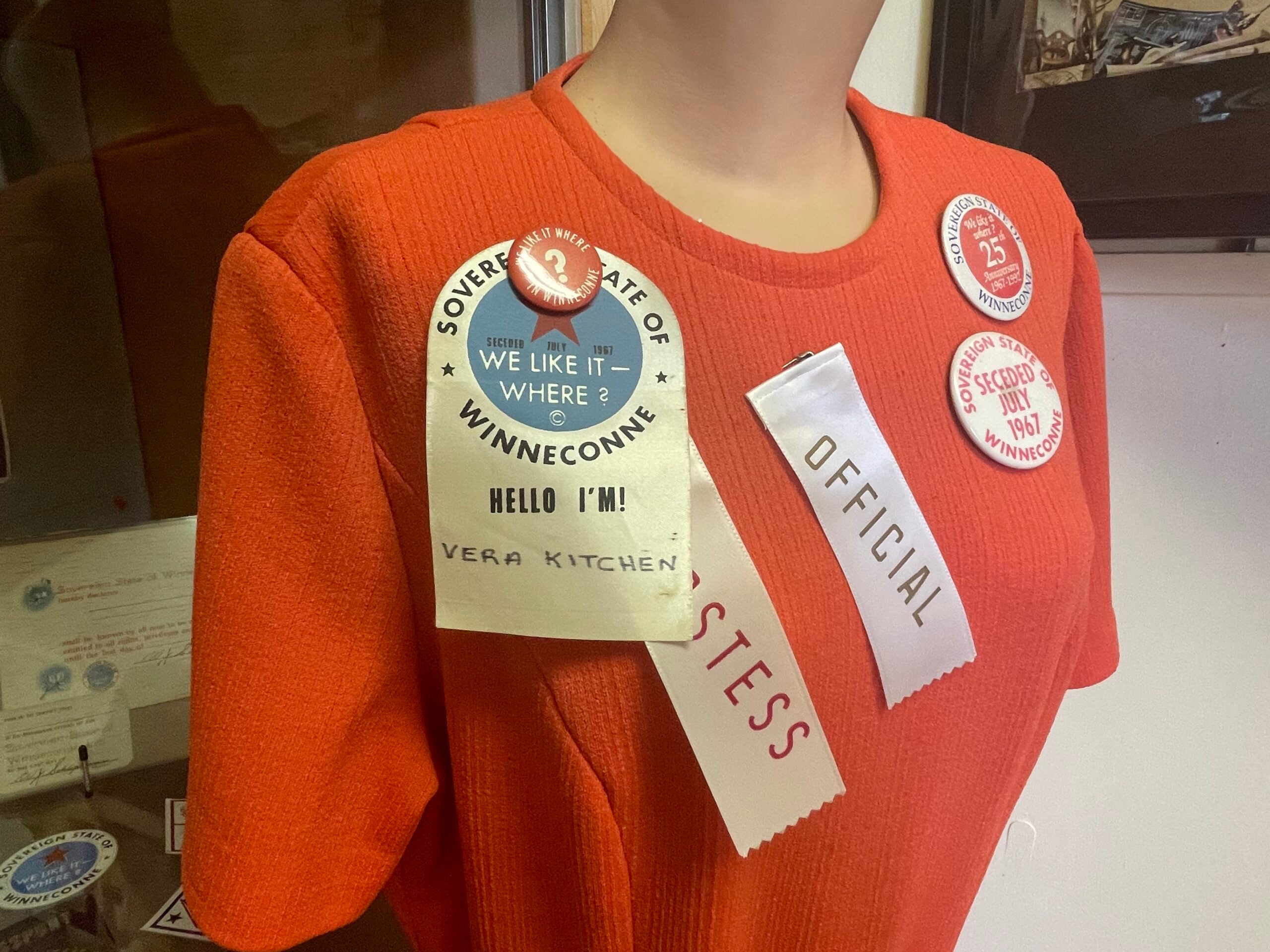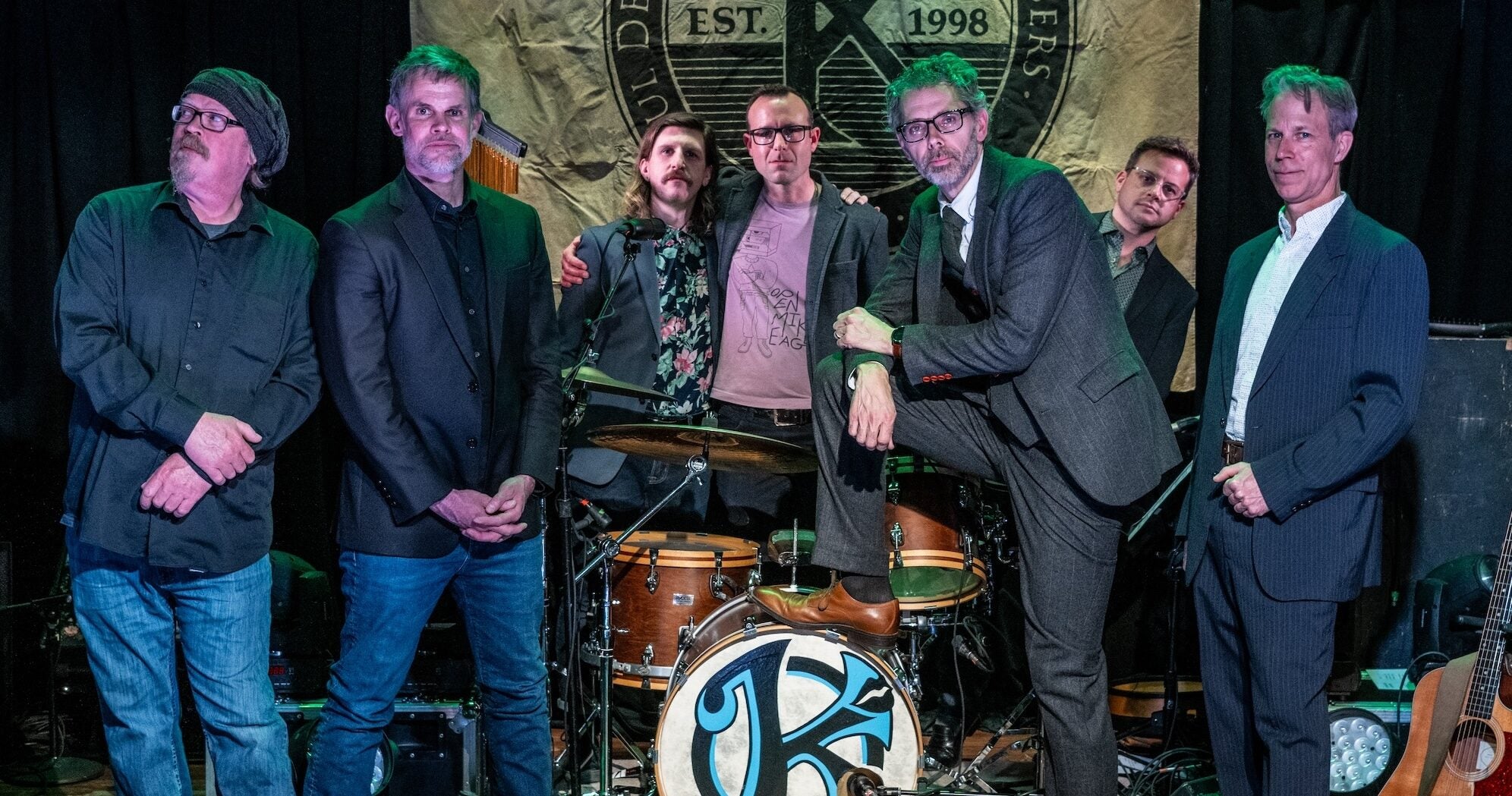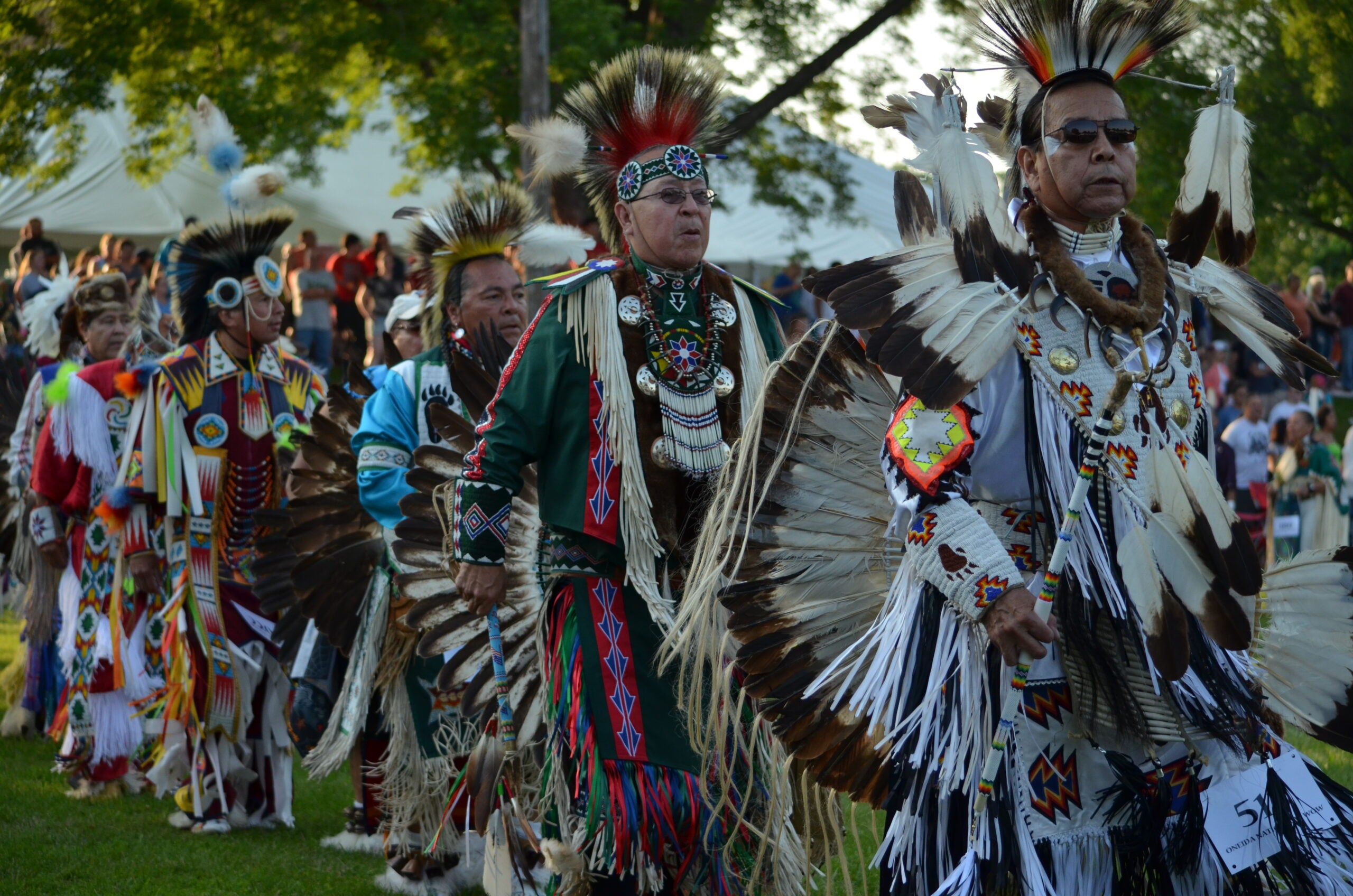For Ojibwe singers Dylan Bizhikiins Jennings and Joe Rainey, powwow music has played a major role in their lives.
“Joey and I have grown up singing,” Jennings told WPR’s “Wisconsin Today.” “At a very young age, we each were blessed to have really good teachers.”
Jennings is a citizen of the Bad River Band and a member of the Marten clan from northern Wisconsin. Rainey is a member of the Red Lake Band who grew up in Minnesota and now lives with his wife in the Oneida Nation.
Stay informed on the latest news
Sign up for WPR’s email newsletter.
“I have a shirt that says ‘Powwows have changed my life,’ which is very, very true,” Rainey said. “Growing up in an urban community in Minneapolis and being from one of the largest Indigenous communities in the country, having that support from a young age around the drum was important to my life. Looking back, it was a foundation to what I am now.”
Becoming Bizhiki
In 2015, Jennings got a call from Justin Vernon, the frontman of the indie folk band Bon Iver. Vernon invited Jennings to participate in Eaux Claires, a music and arts festival he was launching that summer.
“(Vernon) wanted there to be some kind of representation there from Indigenous communities and Indigenous music,” Jennings recalled. “He said he just wanted us to be there and basically do what we wanted to do, and represent how we wanted to represent. We took him up on that offer, and the rest is history.”
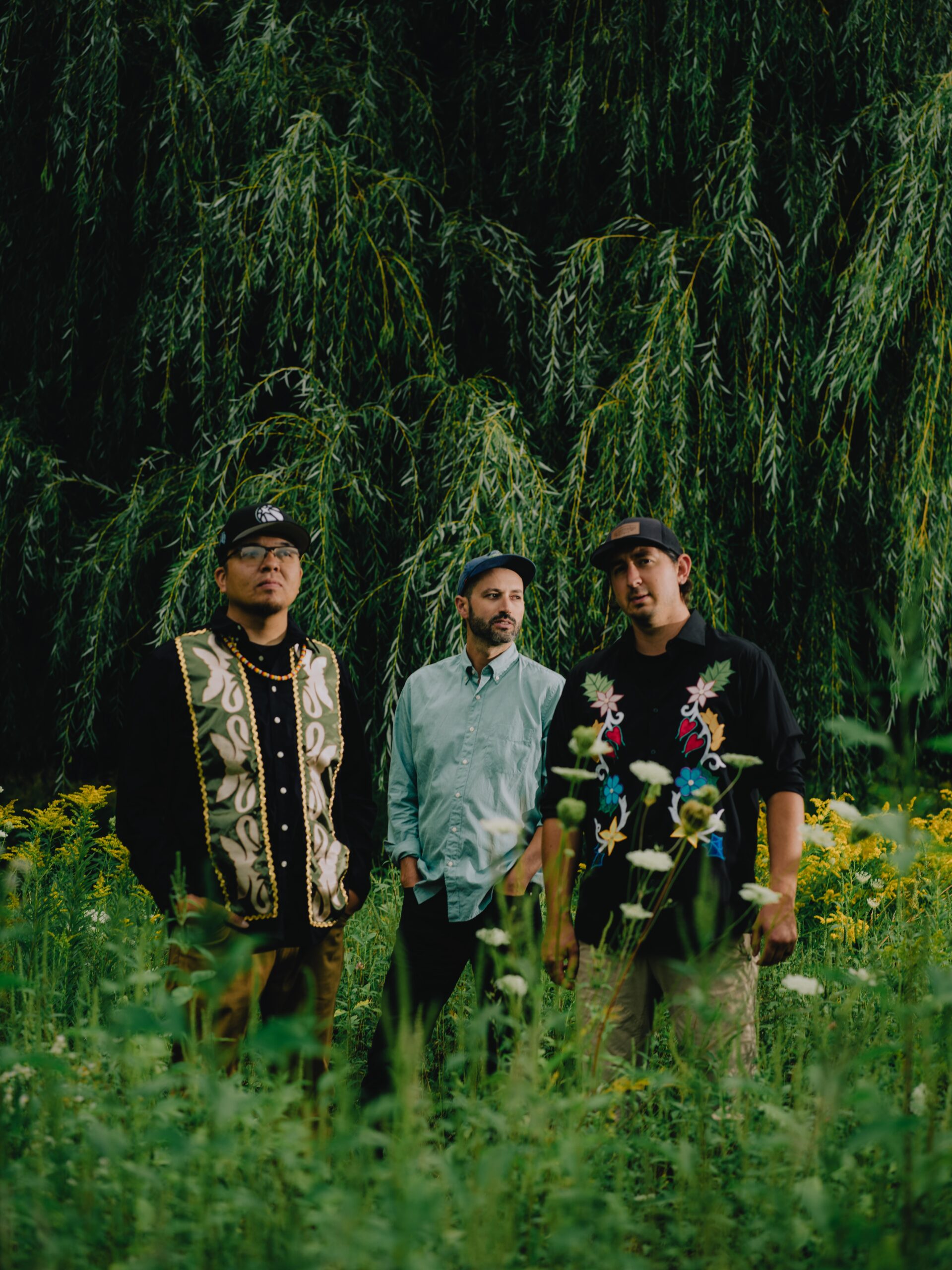
Inspired by Eaux Claires, Jennings and Rainey eventually teamed up with Wisconsin-based musician Sean Carey (also known as S. Carey) to create a collaborative musical group called Bizhiki. They recently released their debut album “Unbound.”
The band tried on a lot of names for size, but ultimately they landed on Bizhiki as an homage to Jennings’ traditional name, Bizhikiins (“little buffalo” in Ojibwe). He was given the name by his mentor Eddie Benton-Banai, a civil rights pioneer who helped to found the American Indian Movement of the 1960s.
“He was a very, very powerful, gifted man from our communities up here in the Northwoods and had a big impact wherever he went,” Jennings said.
Jennings hopes the band is building on Benton-Banai’s legacy of promoting Native American sovereignty and cultural revitalization.
Inside “Unbound”
The songs on “Unbound” center Native themes and powwow singing. The first track, “Franklin Warrior,” opens with stirring instrumentals and a contemplative powwow vocalization performed by Rainey.
Rainey described the song as a tribute to his childhood neighborhood of Seward in Minneapolis. The “warrior” of the title refers to the unhoused people Rainey would see on Franklin Avenue.
“It’s important to take care of those relatives the best way you can,” Rainey said.
Some songs on the album, like the title track “Unbound,” have lyrics in English, but the band felt it was important to include Ojibwe lyrics.
“We’re Ojibwe and we’re going to try to use as much of our language as possible to contribute to the greater movement of normalizing our language in all these different spaces,” Jennings said.
One example is the sixth track, “Nashke!,” which Jennings said is roughly translated as “Look at this!”
“That song is really about thinking about water and how important water is, especially the rain,” he said. “People often think of rain … as if it ruins events. … And really, in our way of life, we’re supposed to see it as a blessing, as a gift, and see all the things that come from it — the way it washes away grief, the way it washes away things that might be bothering us.”
The theme of respecting the natural world resonates throughout the album, including the ballad “She’s All We Have,” which Jennings said was inspired by a lullaby he used to sing for his children.
“The (vocalizations) were part of a song that I used to kind of hum to my children, to my babies when they were really little,” Jennings said. “As singers, that’s something we always do: we sing to our children and our babies.”
Being a powwow singer
For Jennings, growing up in the powwow tradition meant being there to sing whenever and wherever the community needed, whether it was for funerals, weddings, ceremonies or other social gatherings. He and other powwow singers consider this a special responsibility.
“I don’t know that I’ve ever considered myself a musician,” Jennings said. “Growing up, I just knew I was a singer, and I knew that when our community called on you to do something, to help out, that’s where you go. It’s only recently where people (are) referring to us as musicians, like, ‘Well, yeah, I guess we are.’ You know, we belong in these spaces just as much as anybody else does.”
Bizhiki has been performing songs from the new album in venues around the state. They hope that the live performances are a special experience for the audience.
“Having that presence of other musicians on stage is powerful,” Rainey said. “It’s something that you seek as a singer, as a powwow singer: having that full sound and being able to sing as loud as you want.”
A list of upcoming performances is available on Bizhiki’s website.
Wisconsin Public Radio, © Copyright 2025, Board of Regents of the University of Wisconsin System and Wisconsin Educational Communications Board.
